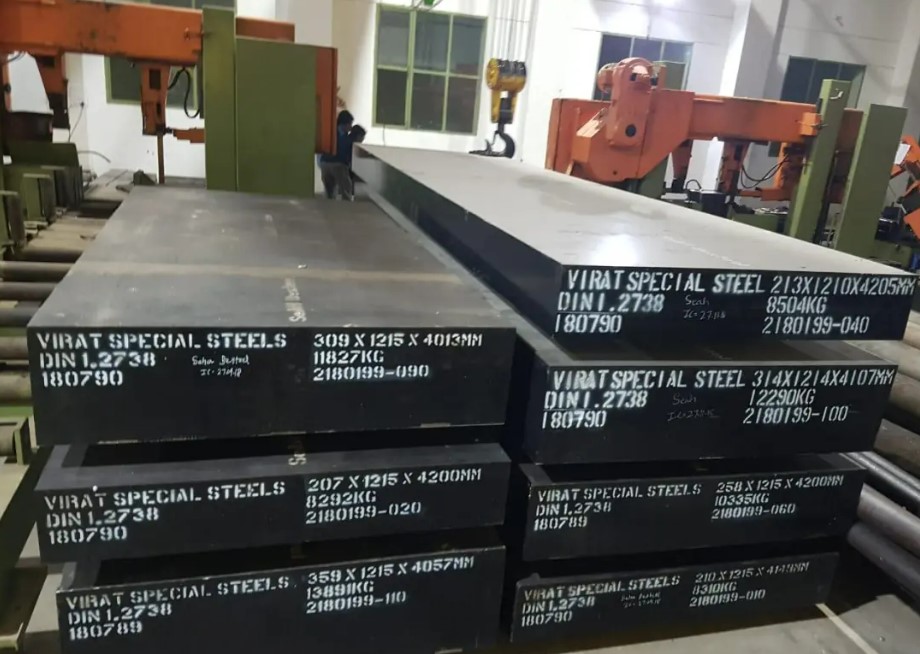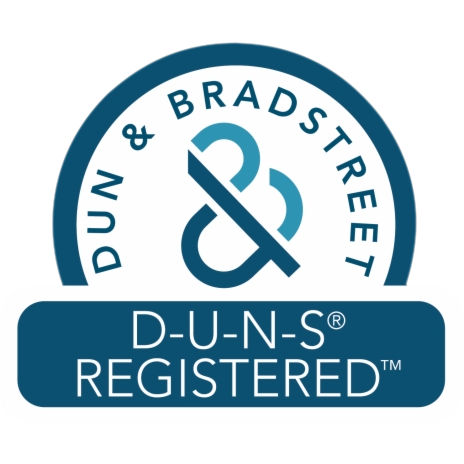Plastic Mold Steels P20+Ni | DIN 2738 | AISI P20+Ni
DIN 2738 which is applicable for large & small plastic mold dies for Automotive Industries, Dies for Domestic goods , High finishing plastic Die, Boaster Plates of Presses, Die Holders & Shoe blocks for drop Hammers, Press Cassettes , Up setter Blocker, forging dies, Different dies & mold for plastic products etc.
Although less expensive options such as Aluminum exist for making molds to be used for shaping plastic, steel is most often the optimum one. It may be impose more investment to begin with but this is offset by its undoubtedly greater operational life and better finish. Also the specialized steels that have been created for plastic molding make for rapid process speed – for any duration it can handle more repetitions than other materials and so enhance productivity.

Steel properties as given below, however, have to be optimally matched to the specific application and these are:
- Degree of purity
- Polishability
- Uniformity of hardness and microstructure
- Wear resistance
- Temperature resistance
- Machinability
- Toughness and hardness
- Thermal conductivity
The Nickel component contributes uniform hardness and structure, improves machinability and a polish that is easy to maintain.
This makes 1.2738 mold steel the ideal material for relatively low temperature applications such as die casting dies and injection molds, synthetic plastic molds dies, and especially for large plastic molds that are easily stressed at their core. They are also ideal for hydroforming tools. DIN 1.2738 is suitable for nitriding and chrome plating.
It is the preferred material for molds shaping plastic products such as automobile bumpers and TV shells. And also for molds for rubber products that are based on both hard rubber (PS) and ultra-hardened rubber (ABS). It is excellent in its processing performance, easy cutting and imparting finish to the end product. It resists electrical corrosion.
It is most cost effective when used for high-volume plastic molding such as TV set bodies, laptop bodies, plastic parts for home appliances and automotive parts and any such where finish is important.
As Virat Special Steels inform us, DIN 1.2738 tool steel is usually supplied as pre-hardened/quenched and tempered to 280 – 320 HB hardness. Still, after machining if the need arises, they can be annealed by first heating to 710°C and after the temperature gap between core and surface has narrowed to 740 °C for about 2 to 5 hours; followed by cooling slowly at the rate of 10 to 20 °C per hour to about 600 °C before further air cooling.
Hardening is conducted in the temperature range of 840-870°C to be followed by immediate quenching in oil/hot bath/air to a temperature between 180 to 220°C. Hardness after quenching is around 52 HRC.
Two rounds of tempering are required immediately after such hardening and the heating to tempering temperature must be gradual. Higher temperatures result in steel with lower hardness values (700°C results in an HRc of barely 30 while tempering at 250°C will result in HRc of 50). The duration of tempering at the chosen temperature should correspond to 1 hour per 20 mm of thickness.
They are usually supplied as Round Bar of diameter ranging from 20mm to 1000mm or as Plate or Block of thickness ranging from 12-500mm x width 200-2000mm. Generally black on the surface, they can be customized for clients in Roughly Machined, Peeled or Turned condition.
The Leading Company VIRAT SPECIAL STEELS PVT. LTD. is one of the largest Importer, Exporter and Stuckist of P20+Ni | DIN 2738 | AISI P20+Ni
Learn more:
https://www.viratsteels.com/p20ni.html
For more information Contact us:
info@viratsteels.com, +91-9814021775






